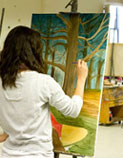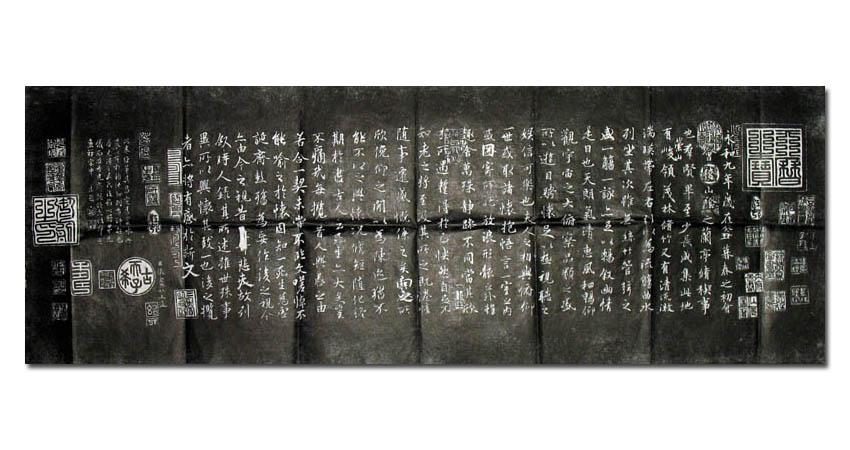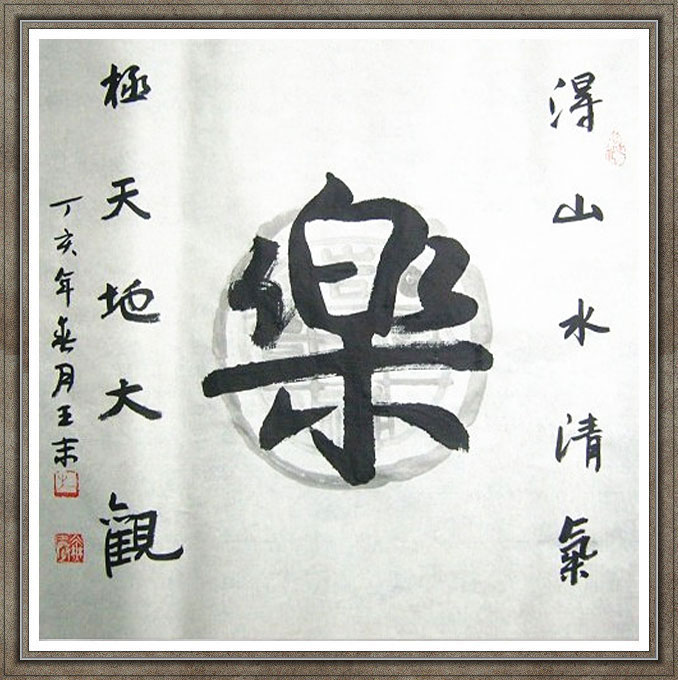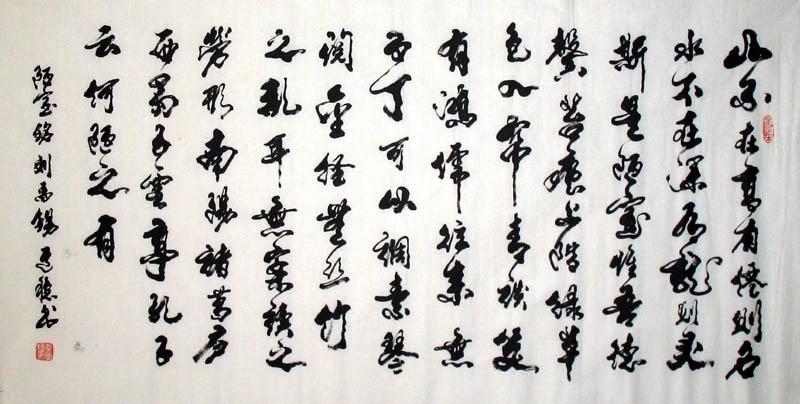The King of all the Chinese Cursive Script Calligraphies
—The Orchid Pavilion
Wang Xizhi, traditionally referred to as the "Sage of Calligraphy," was both one of the participants as well as the author and calligrapher of the Preface to the Poems Composed at the Orchid Pavilion. It is said that none of his original works remain today. Some of his best writings were preserved on carved stone tablets, stone rubbings taken from them have been reproduced and reprinted widely; they have been studied by generations of students and used as examples to learn and practice the art of calligraphy. In terms of the origin of “the Orchid Pavilion,” an interesting and exquisite activity should be mentioned. This activity was known as "floating goblets". The gentlemen had engaged in a drinking contest: wine cups were floated down a small winding creek as the men sat along its banks; whenever a cup stopped, the man closest to the cup was required to empty it and write a poem, which was very romantic and poetic scenery. Now appreciate the graceful preface.
Translated by Lin Yutang
In the ninth year of the reign Yungho[A.D. 353] in the beginning of late spring we met at the Orchid Pavilion in Shanyin of Kweich'i for the Water Festival, to wash away the evil spirits.
Here are gathered all the illustrious persons and assembled both the old and the young. Here are tall mountains and majestic peaks, trees with thick foliage and tall bamboos. Here are also clear streams and gurgling rapids, catching one's eye from the right and left. We group ourselves in order, sitting by the waterside, and drinking in succession from a cup floating down the curving stream; and although there is no music from string and wood-wind instruments, yet with alternate singing and drinking, we are well disposed to thoroughly enjoy a quiet intimate conversation.
Today the sky is clear, the air is fresh and the kind breeze is mild. Truly enjoyable it is sit to watch the immense universe above and the myriad things below, traveling over the entire landscape with our eyes and allowing our sentiments to roam about at will, thus exhausting the pleasures of the eye and the ear.
Now when people gather together to surmise life itself, some sit and talk and unburden their thoughts in the intimacy of a room, and some, overcome by a sentiment, soar forth into a world beyond bodily realities. Although we select our pleasures according to our inclinations—some noisy and rowdy, and others quiet and sedate—yet when we have found that which pleases us, we are all happy and contented, to the extent of forgetting that we are growing old. And then, when satiety follows satisfaction, and with the change of circumstances, changes also our whims and desires, there then arises a feeling of poignant regret. In the twinkling of an eye, the objects of our former pleasures have become things of the past, still compelling in us moods of regretful memory. Furthermore, although our lives may be long or short, eventually we all end in nothingness. "Great indeed are life and death", said the ancients. Ah! What sadness!
I often study the joys and regrets of the ancient people, and as I lean over their writings and see that they were moved exactly as ourselves; I am often overcome by a feeling of sadness and compassion, and would like to make those things clear to me. Well I know it is a lie to say that life and death are the same thing, and that longevity and early death make no difference! Alas! As we of the present look upon those of the past, so will posterity look upon our present selves. Therefore, have I put down a sketch of these contemporaries and their sayings at this feast, and although time and circumstances may change, the way they will evoke our moods of happiness and regret will remain the same. What will future readers feel when they cast their eyes upon this writing.












